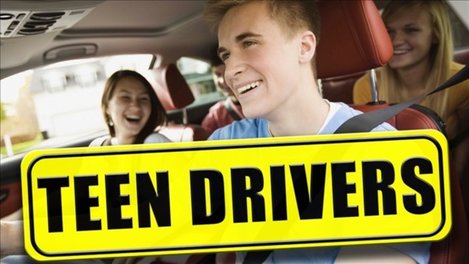The start of school this week means more teen drivers are on the roads. The attorneys at Conybeare Law Office are far too familiar with car accidents involving teen drivers. We would like to offer insight into where teen drivers go wrong and how parents can educate their teens to be safe drivers. We also want to address common mistakes parents make that put both themselves and their kids at risk when purchasing and insuring cars for their teen drivers.
There are three types of accidents that teen drivers are typically involved in: drinking/drugged driving accidents, distracted driving accidents, and inexperienced driver accidents. Teens and adults alike risk lives by driving while drunk or drugged, but teens have less experience in knowing when their bodies cannot handle being behind the wheel. Teens are also fearful of repercussions from admitting they cannot drive due to intoxication. Understanding that these short term repercussions are less severe than the long term consequences of a drinking or drugged accident or ticket is a concept parents should help their teens grasp. Unfortunately, we’ve handled many accidents where intoxicated drivers have injured themselves and others because they were under the influence of alcohol or drugs.
Distracted driving is not unique to teens, but they are far more susceptible to it. Teens get distracted by passengers, phones, and radios, especially on their way to and from school. AAA did a study last year in which it obtained 1700 of videos of teens driving. After watching them, they estimated distracted driving is a factor in 58% of teen driver accidents. You can see videos from the study in this news report, and we encourage you to share it with all of the teen drivers you know. What’s most shocking is that these teens knew they were being filmed, and they still engaged in distracted driving that resulted in accidents! As one example, we were involved with an accident that happened when a texting teen was driving to school and hit a person on a bicycle. Teens are just learning how to scan for hazards while driving, put a phone in front of them and their ability to scan becomes zero.
This leads us to the third type of accident teen drivers are in – those due to their inexperience. Scanning the road for hazards is an acquired skill. A case in which a teen driver turned in front of a motorcycle comes to mind when thinking of this issue. Inexperienced teen drivers are also more prone to treating their cars like toys. Our attorneys have seen accidents when teens ride on tailgates, try to race trains, or use their cars to scare or prank their friends causing serious injuries and fatalities. Parents should spend time making sure their teens appreciate the fact that their two-ton car can cause fatal damage when being used as a toy. Thankfully, advances in technology can help prevent these three types of accidents.
Newer cars mean more safety features. We’ve seen accidents today that would have been fatal a decade ago, but for these advances. Three-point seat belts, airbags, and high tech crush zones can truly be the difference between life and death. Seat belt use is on the rise, but parents must still stress to their teens that seat belts dramatically reduce the risk of death and serious injury. Back up cameras, forward collision alert/prevention, lane departure warning/mitigation, blind spot warning, and smartphone connectivity features all help prevent accidents. While the attractiveness of an older model car’s price is alluring, they just cannot protect your teen like the cars of today can. Ensuring the safety features of your teens car are enabled is also important, as the temptation to turn them off is great for teens.
Finally, we’d like to warn you about a common mistake parents and grandparents make when insuring their teen drivers that puts everyone at great financial risk. With increasing auto insurance costs, it can be tempting to avoid disclosing to your insurance company that a teen is the dedicated, exclusive, or even periodic driver of a car on your policy. However, if your teen is in an accident, and you have failed to list him or her in your policy, the insurance company may deny all coverage, leaving you and your teen personally liable for any damages. Saving a few bucks in the short term just isn’t worth the hundreds of thousands of dollars you may be liable for if your insurer denies coverage.
If you are interested in learning more about teen driving issues, we encourage you to visit www.teendriving.com where you can find even more resources to guide you and your teen. Check back with Conybeare Law Office come winter for more information about teen driving in the ice and snow and Michigan’s commonly misunderstood graduated driver’s license scheme.
